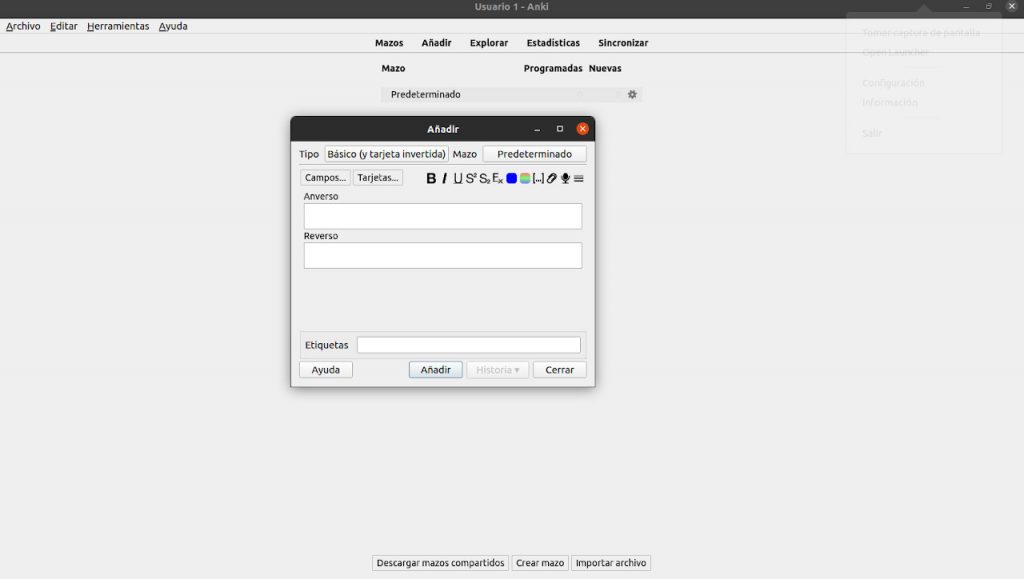Study cards they are one of the most effective study tools since they drive an active participation of memory in the learning process.
Originally they were cardboard rectangles on one side of which a question was written and an answer on the other. Currently there are applications for computers and mobile devices that They fulfill the same function, but with the incorporation of multimedia content.
In this post we will see some open source tools that we can use to create and review them.
When to use a study card
Flashcards come in handy when it comes to learning the relationships between two pieces of informationn. They are ideal for learning short definitions or vocabulary words. But when it comes to learning information arranged in complex hierarchies, it is best to opt for other mechanisms.
Common Mistakes
The most common failures when using flashcards are:
- Use them to memorize without worrying about understanding the content.
- Including too much information in the answers which makes it difficult to memorize and answer them completely.
Some suggestions on how to use them
1. Make your own flashcards
Although many programs and websites allow you to download flashcard collections, andcreating them is part of the learning process. By breaking the text into questions and answers and summarizing these in your own words, you establish neural connections that will aid the recall process.
2. Mix pictures and words
It is known that iIncluding an image that is in some way related to the words in the answers helps to memorize it. Suppose you have to remember the name of 4 Linux distributions; CentOS, Ubuntu, Linux Mint, and OpenSuse. Including logos above names will be much more useful than just writing names.
3. Use mnemonic mechanisms to create mental connections
A mnemonic mechanism is one that helps you build an association between two pieces of information in your mind.
For study cards, it is best to use acronyms and images. For example, with the initial 4 of the distributions above we can form OCUL. With which we could put some binOCULars or the card of an OCUList.
This is a serious blog, please refrain from making the suggestion that you have been thinking about since I set the example.
4. Use the KISS principle
KISS is an acronym in English Keep It Simple, Stupid! "Keep it simple, stupid!"
The questions must be punctual and the answers must be short. If you have to memorize long and complex answers, use several flashcards.
5. Go over the cards both ways
For the learning process to be complete, the questions and answers must be alternated.
Creating Study cards. Some open source options
Anki
This program allows you to choose between different designs and response times and times. Supports multimedia content and synchronization via web. Anki's capabilities are extended with a series of add-ons
The program is available for Windows, Linux, Mac, and mobile devices. It also has a web version.
Mnemosyne Project
Application uses an algorithm to show more frequently those questions that the user finds it more difficult to memorize. Accepts three-sided cards. This is useful, for example, to study languages, on the first side the word in the original language, on the second the written form and on the third the pronunciation.
The program is available for Windows, Linux, Mac, and Android.
Open Cards
The basic idea of Open Cards is to use PowerPoint presentations (* .ppt) or Markdown files (* .md) as flash card sets. In this way, the titles of the slides are represented as questions and the contents of the slides as their answers. The program uses learning algorithms to select the order and frequency with which they are displayed.
There are versions for Windows, Linux and Mac
IGNUit
Es an app based on the Leitner memory card system.
Cards can include embedded audio, images, and math formulas (via LaTeX). You can import and export in various file formats, including CSV.
The program only has a version for Linux.
